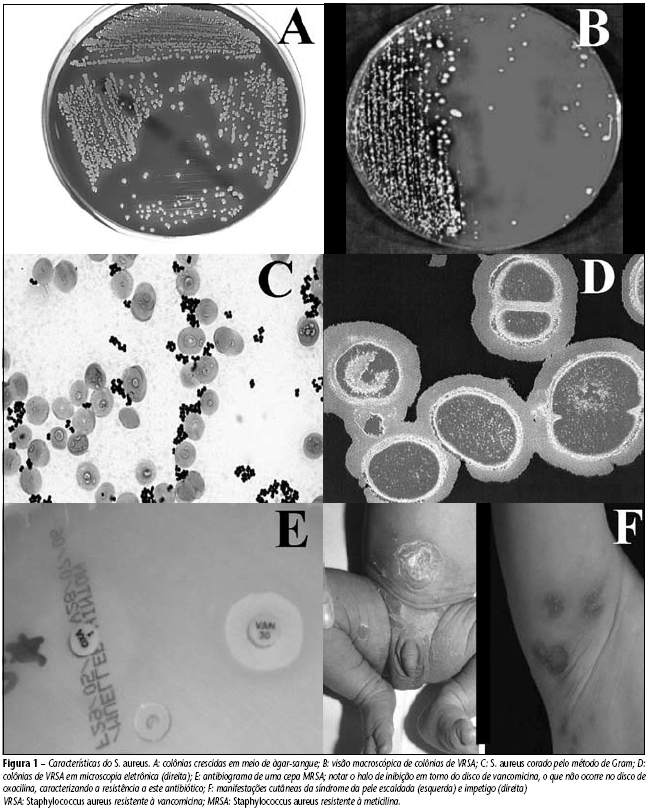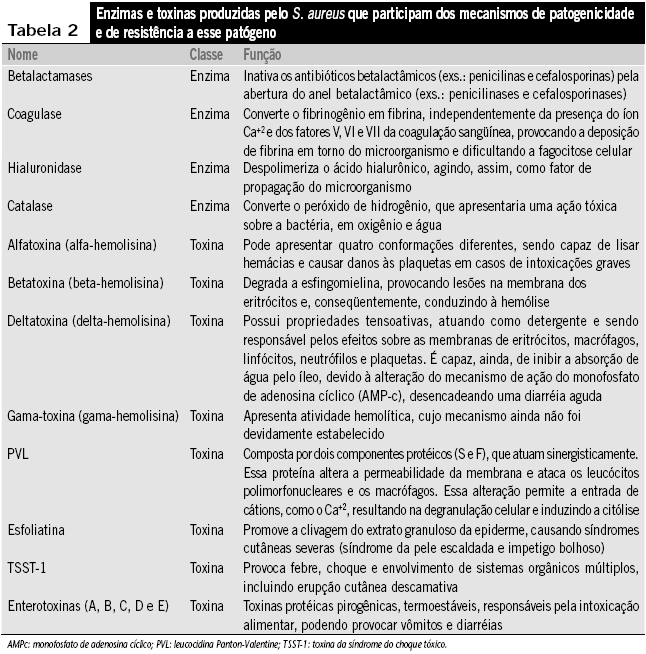Staphylococcus aureus is a bacterium from Gram-positive coccus group, which is part of the human microbiota. It may cause diseases that may vary from simple infections (i.e., pimples and furuncles) to severe infections, such as pneumonia, meningitis, endocarditis, toxic shock syndrome and septicemia, among others. This bacterium was one of the first bacteria affected by antibacterial agents, however, its ability of adaptation and resistance turns it into an important hospital and communitarian pathogenic species of great concern. In this article we will discuss some important points related to the S. aureus and the pathologies related to it to reinforce it as a target for the design of new antibiotics.
S. aureus; Microbial resistance; MRSA; VISA; heteroVISA; VRSA




